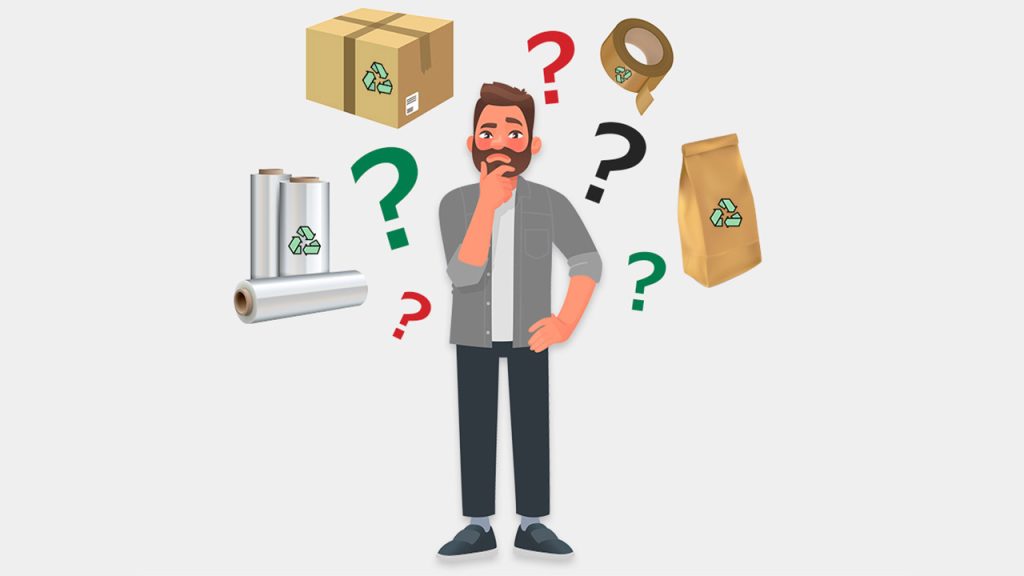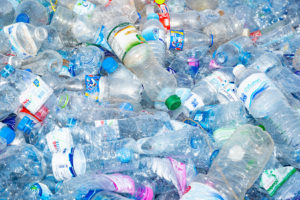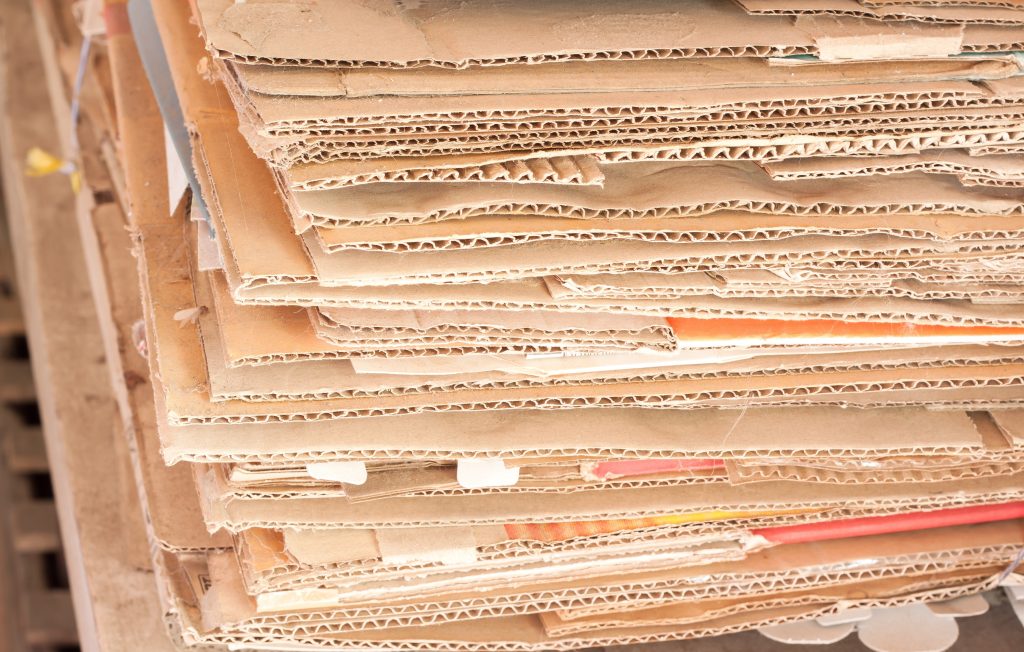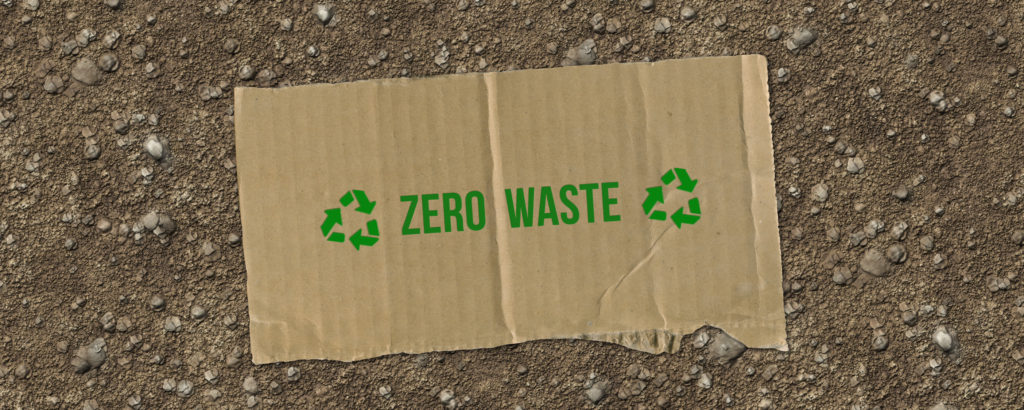What is Sustainable Packaging?
What is Sustainable Packaging?

According to dictionary.com the definition of sustainable is ‘capable of being supported or upheld’.
Wal Mart – one of the biggest users of eco friendly food packaging worldwide – is credited with proposing the 7 R’s of sustainable packaging (first showcasing them at Pack Expo 2006).
These are Remove, Reduce, Reuse, Recycle, Renew, Revenue, and Read.
However, the three which have been widely adopted are Reduce, Reuse and Recycle. These are the options that Springpack can offer your business.
With so much conflicting information out there, it can become confusing what packaging materials are actually sustainable. We’ve made it simple.
Sustainable packaging is any type of eco-friendly material used to wrap, transport or store products.
What packaging materials are sustainable?
So what is classed as a sustainable material according to packaging companies and packaging manufacturers?
The sustainability of a material is measured by the impact it has on people and natural resources. A sustainable material avoids depleting or degrading the environment – because they have a small impact on the environment, we can safely rely on them in the future.

Pet plastic is one of the most widely recycled plastic as it can be easily melted down for uses in lower grade plastic products.

Cardboard including cardboard boxes and paper wrappings are also a very sustainable packaging materials, as they are often 100 recycled. They are made from a renewable environmentally friendly raw material and they are some of the most environmentally effective materials to recycled. This makes them great biodegradable packaging / compostable packaging.
What does eco-friendly packaging aim to achieve?
-
Reduce the amount of packaging on products
-
Promote the use of renewable materials like paper, cardboard, sugarcane bagasse and bamboo, among others
-
Eliminate the toxic materials used for packaging (from biodegradable packaging to compostable packaging)
-
Provide and facilitate the recycling of packaging
-
Educate customers disposing and recycling of the packaging
What’s the problem with regular packaging?
Packaging is important as its principal function is to protect products and preserve their quality during their product lifespan. There’s nothing incorrect in using packaging, but the problem comes when the packaging we use is single-use and harmful for the environment, and here is where plastics such as PET and PP come in. Based on statistics, nearly 70% of plastics end up in the landfill and oceans where they remain for hundreds of years. Worst of all, these plastics contain toxic particles that will negatively affect the environment.
Why choose eco-friendly packaging options?
The environmental effects of single-use plastics (SUPs) don’t begin and end with waste treatment. This is just the end of the whole process that most consumers are familiar with. SUPs can have a severe impact on the environment at every stage of their production, from the source of raw materials, manufacturing, transportation and purpose, to disposal.
Switching to eco-friendly packaging is vital to help prevent this environmental issue. Packaging manufacturers and business owners have a crucial role to play in this.
Eco-friendly packaging is important because it reduces the ecological footprint at each stage of the product’s life cycle. Thus, it helps both the producer and the consumer reduce their environmental impact.
Plastic pollution keeps growing and growing every single day at an alarming rate. Therefore, industries need to reduce and educate their customers on the use of their packaging.
Did you know that eco-friendly packaging can also help your business grow?
It’s unsurprising that customers now place a higher emphasis on sustainability than they did previously. Getty Images recently conducted a global survey of 10,000 people & discovered that while 81% of customers consider themselves environmentally conscious, just half claim to buy goods from eco-friendly brands.
Many people are unfamiliar with an eco-friendly way of life. However, consistent research on the environmental damage caused by waste packaging and the use of hazardous products have gone a long way toward educating customers on how to make better product choices.
As a result, there has been a change in how we communicate, interact with, and choose brands when deciding to buy products and services, with packaging being one of the major concerns for both companies and customers. Whether it’s the materials used to create the packaging or how goods can be disposed of, these brands now need to have an ethical message or a sustainable goal.
Here is a summary of business advantages that sustainable packaging can provide to your business:
- Improves brand and consumer perception: it can increase your sales
- Opportunity for unique brand positioning in specific markets: eco-friendly businesses are becoming more popular than ever
- Potential for increased sales amongst specific demographics: on the past 2nd July 2021, the EU officially banned SUP (single-use-plastics), and it’s expected to happen next year in the UK
- Enhanced customer satisfaction through easier disposal/recycling of packaging
- Cost reductions through minimized material usage: because why spend when you can save? Using reusable packaging reduce your business carbon footprint and your costs
- Reducing your organization’s carbon footprint
- Potential reduction in transit costs through minimized materials/volume

"Consumers want environmentally friendly packaging in addition to eco-friendly products"
Consumers are willing to pay more for green, but they would also buy more sustainably packaged products if more of them were available and better labelled, according to consumer trends. The increased demand for alternative packaging is supported by data and demonstrates a clear consumer preference for more environmentally friendly products. Discover how retailers can meet this demand with the new green packaging standard.
What is Sustainable Packaging?
Eco-friendly packaging includes recyclable materials, such as PET or HDPE plastic, cardboard and paper wrappings. These materials, once sorted correctly for recycling, can be shredded, pulped, or melted down and remoulded to begin anew as raw material for new packaging or other uses. But while cardboard will retain the quality of its properties, plastics degrade each time their polymer chains are broken down (or melted) and can only be recycled so many times before they must be sent to landfill or incinerated.
Other eco-friendly materials, such as industrially compostable PLA (starch) and cellulose-based materials, are used for sustainable packaging because they have similar characteristics to plastic, but will biodegrade in compost. These compostable materials can be molded into food service containers and cutlery or flexible packaging. Compostable packaging can also be used for food packaging. The technology is so advanced that these films are very similar in performance to regular plastics, but due to its organic composition, it is certified to safely degrade in compost. Its unique performance and eco-friendliness make it the ideal material for effective sustainable packaging.
Compostable packaging is an increasingly popular form of sustainable packaging. It protects food products similarly to regular packaging, displaying the properties and resilience of traditional materials, however it breaks down fully in the ground into beneficial organic compost.
Sustainable packaging is any type of eco-friendly material used to wrap, store, ship or shelve products.
Sustainable Packaging Solutions – Sustainably Sourced
We stock a wide range of sustainable packaging. From 30% recycled content pallet wrap to fully recyclable paper tape to custom packaging solutions, check out the range here.
Were Here to Help Guide Inform




